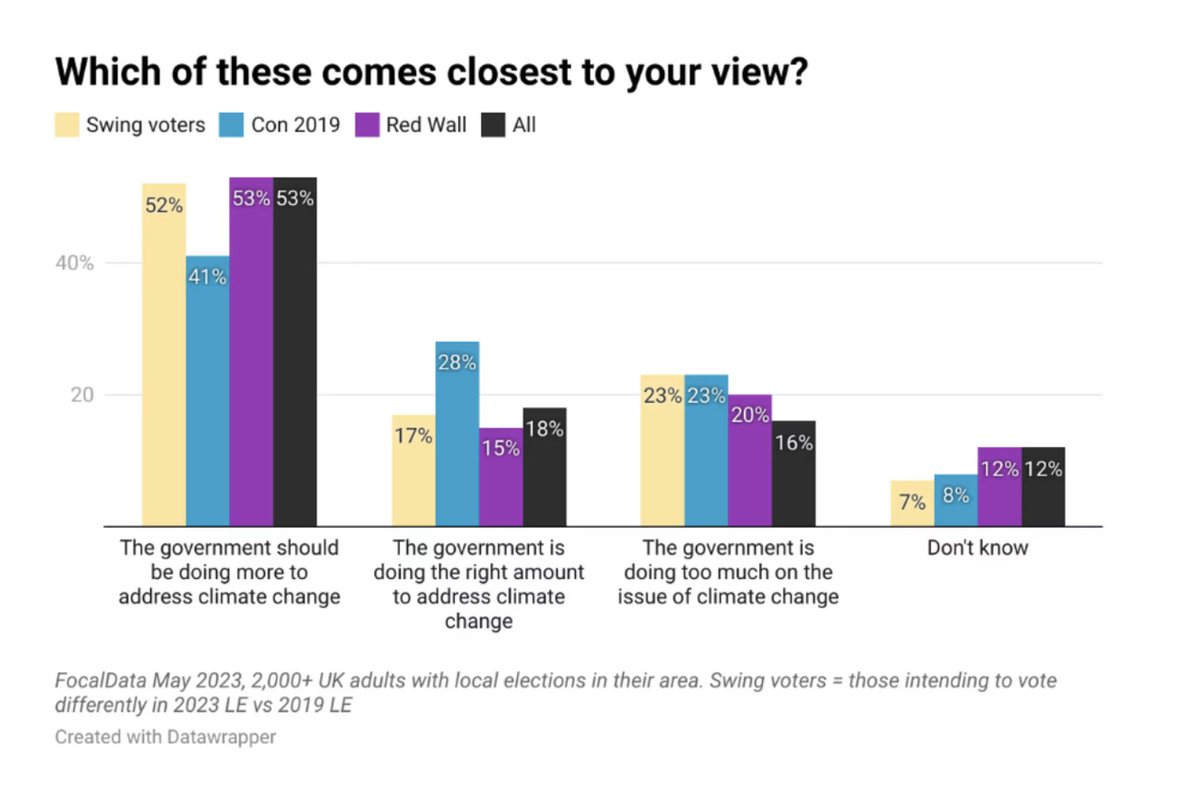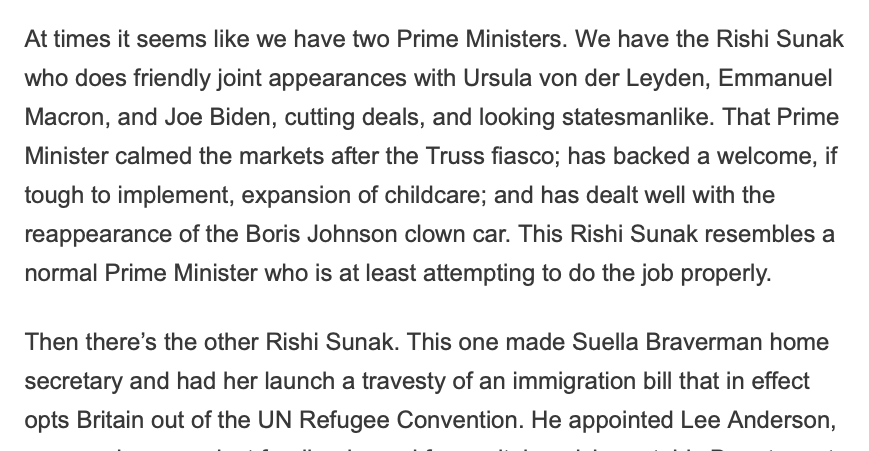A lot of people on the Right saying the Tories need to ditch Net Zero after Uxbridge (just like they ditched planning reform after Chesham & Amersham). On the polling evidence, they're getting WAY over their skis. Quick thread.
First and most obvious point: Net Zero is REALLY popular. As this recent polling from @ECIU_UK shows, people (inc Con voters) generally really like it, and generally think that if anything the govt hasn't done enough rather than doing too much. https://t.co/pqPSRvvcbZeciu.net/analysis/polli…




As I've pointed out before, this also holds up when you get to more specific/impactful questions like 'Do you want onshore wind farms in your local area?'
https://twitter.com/rcolvile/status/1567441954752847874
In fact, the UK is notable for not just the degree of concern about climate change but the degree to which it isn't a party-political issue - which partly reflects the Conservative Party's stand on this since Cameron's husky-hugging ons.gov.uk/peoplepopulati…
Even on Clean Air Zones, we published a report recently which shows that people do actually see the need - these slides from @BMGResearch focus groups & polling for us




And here's more from that report, which you can find here https://t.co/4XKWD8iq3Qcps.org.uk/research/the-f…




So what's the lesson of Uxbridge? It's that people support clean air policies. But not if they think they're going to be treated as cash cows, or punished unfairly. (It's not just ULEZ btw - see this from Manchester recently, or this great screenshot from Australia.)




The broader issue is that support for Net Zero is broad but shallow. People support it right up until the time it imposes costs on them personally, or people around them, that they see as unfair.
This is something that many green campaigners are all too aware of, and have been wrestling with - see the work of the Zero Carbon Commission for example zerocarbon.publicfirst.co.uk
It's also why we at @CPSThinkTank have always said Net Zero needs to be driven by innovation and incentives, not by punishing people - it's critical that people don't feel like they're being targeted/losing out.
But given where the public are on this - including most Tory voters - a broader argument that 'ULEZ proves people don't care about this stuff and the Tories should go full anti-eco' is very probably going to put off more people than it wins over.
PS This from @michaelgove today is also really interesting on exactly this tension - see also my column last week telegraph.co.uk/politics/2023/…
As Gove says, and I said last week, the other big flashpoint comes when environmental goals are dogmatically prioritised above all else - see eg the protests in Holland over farming, or nutrient/recreation neutrality here thetimes.co.uk/article/if-we-…
• • •
Missing some Tweet in this thread? You can try to
force a refresh

 Read on Twitter
Read on Twitter











